What happened in the African literary scene all last month? Here are a few highlights. Enjoy reading and happy new month to you!
1. All Money No Hype:
When the long list of the NLNG Prize for Poetry came out, it didn’t seem like the African literary scene cared. Those of us who new people on the list were pretty excited.
But there hasn’t been that much of a buzz around the prize within the broader literary community. Odd since we’re talking 100, 000 dollars.
Nigerian blogger Tolu Ogunlesi spoke for a lot of people in the community when he tweeted a few days after the long list was released:
Disappointing though, to see a $100k book prize (probably largest payout in Africa) play out in near-obscurity. Sad. Shame.
— tolu ogunlesi (@toluogunlesi) August 14, 2013
Thinking back to the Caine Prize and how everyone rallied around the prize and wrote and talked about the pieces and stayed up all night (literally) waiting for the announcement to be made, the silence with which the NLNG Prize has been received is odd, to put it mildly.
2. “Is This Her Best Look Yet?”
The Farafina Trust Writing Workshop run by Adichie and sponsored by Nigerian Breweries took place this month and closed with a gala of some kind called The 2013 Literary Evening. It’s cool that Adichie got all dolled up for the event.
The popular Nigerian fashion blog, Bellanaija, said that this was the best she’d ever looked. Do you agree?
3. It’s Got to Feel Good Being Bulawayo
Bulawayo has got to be the most sought-after African novelist at the moment. In the wake of being long-listed for the Booker Prize, her debut novel, We Need New Names, makes it into yet another long list.
This time, it’s the Guardian First Book prize. I’m rooting for her and also hoping that all this hype is helping the sales of her novel. After all, man cannot live on long-lists alone.
4. African Novelists Running Things on Twitter
Teju Cole and Wainaina Binyavanga are two of the 6 or so Africans who made the “FP Twitterati 100,” a list that comes out once a year. It’s essentially the “who is who” of twitter and tells you who to follow to get a global handle on things.
Teju and Wainaina made the list alongside the Pope and Bill Clinton. Pretty cool, no?
On related news, Twitter should begin paying people like Teju who keep coming up with fun things to do with twitter. The other day, the Nigerian-American novelist had Twitterville spellbound with a series of tweets that’s being called “Teju’s Dictionary.” Here are selections:
AFRICA. A country. Poor but happy. Rising.
— Teju Cole (@tejucole) August 26, 2013
VIRGINITY. An obsession in Iran and in the olive oil industry. It can be lost, like a wallet. — Teju Cole (@tejucole) August 26, 2013
SUNSET. Beautiful. Like a painting. Post on Instagram and hashtag “no filter.” — Teju Cole (@tejucole) August 27, 2013
NEWSPAPERS. Bemoan their gradual disappearance. Don’t actually buy any.
— Teju Cole (@tejucole) August 26, 2013
PRETTY. On Facebook, to indicate an unattractive woman.
— Teju Cole (@tejucole) August 26, 2013
5. Happiness, Like Water
Congrats to Chinelo Okparanta! The Caine Prize shortlistee’s debut collection of short stories titled Happiness, Like Water was published on the 13th of this month. I picked up a copy three weeks ago and encourage you to do the same. While reviews are still trickling in, the few that are out seem to focus on the social commentary of the stories.
Kirkus praises the novel for capturing “the vibrancy of [Nigeria’s] heart” and “the soul of its people.” Financial Times says the collection “tells of a society caught between tradition and modernity.” Granta seems excited about the fact that the stories “offer a clear-eyed view of an often traumatic family life, questioning the purpose of their time on earth, and whether there is a hereafter, or a different kind of afterlife altogether, outside of Port Harcourt.” For the Daily Beast, it is about how Okparanta’s stories “illustrate” women’s “struggle to control their fate in the face of oppressive circumstances.”
*sigh* When will readers stop evaluating African novels on the basis of their social significance?
6. Great Month for African Crime Fiction:
a. Cassava Republic, an indie press based in Nigeria, released the Nigerian edition of Mukoma Ngugi’s crime thriller, Nairobi Heat.
b. Cordite Books, a newly established indie press based in Nigeria, launched an African crime fiction imprint.
c. On related news, Helon Habila who owns Cordite jointly with the folks at Parresia Books, got everyone thinking deep thoughts about contemporary African fiction when he said on Brittle Paper that crime fiction captures the African Zeitgeist. Here is how he puts it:
“I think, if you want to capture the African zeitgeist, the spirit of the times, you can do that best through crime stories.” – See more HERE.
This is all I have for this month. So much is already happening in September, so stop by again for another digest of happenings in the African literary scene.



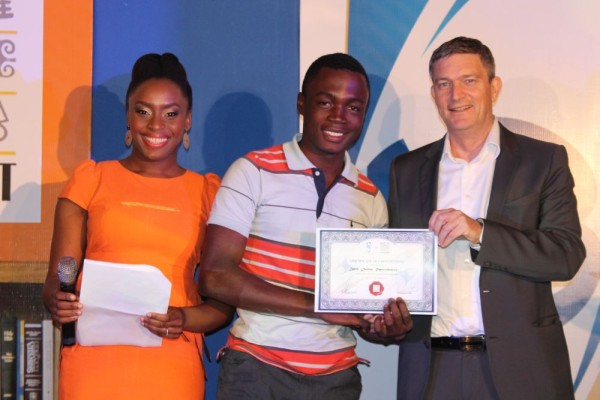
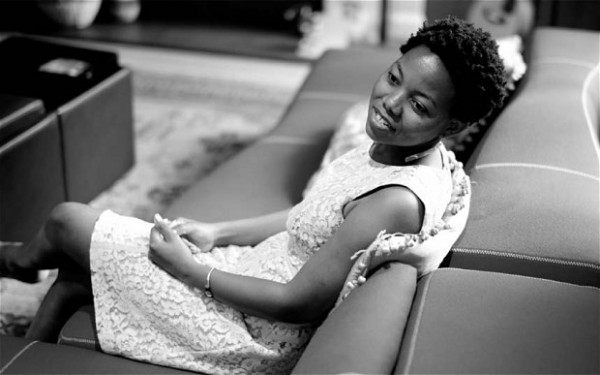
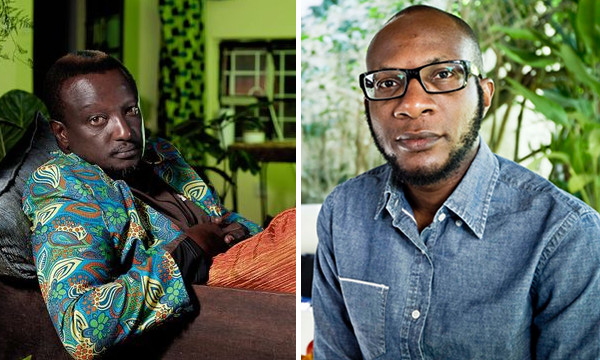
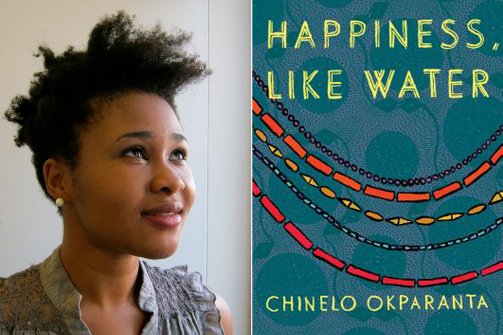
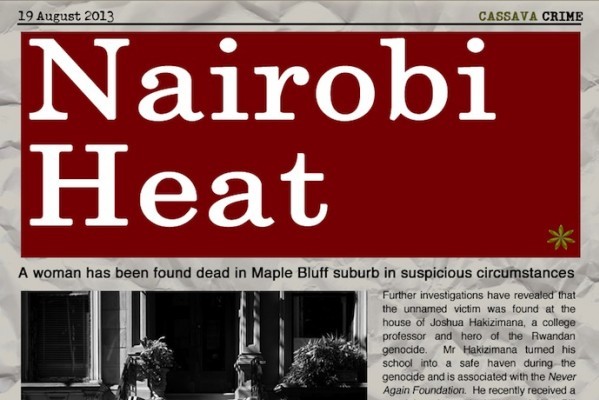






Lore September 13, 2013 21:08
It's a pity about the NLNG prize. I think this apathy towards the prize has always been there. Why this is I do not know. Take the Caine Prize for example, a number of us can list the last six Caine Prize winners effortlessly but we cannot do the same for the NLNG prize. In part one might say that as Nigerians (after all the prize is a Nigerian prize) we have not celebrated, quizzed and critiqued the literary works that are lauded by the NLNG prize yearly as much as we should. I think it is up to us to give the prize the required publicity it needs.